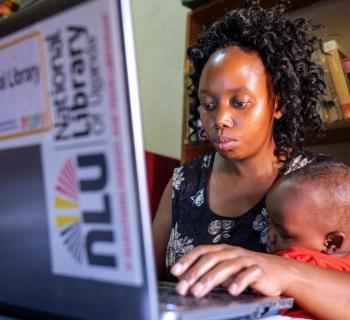There's still a long way to go to bridge the digital divide between the least developed countries, where internet use is just 27%, and developed countries, where it is over 93% (ITU 2024).

THE CHALLENGE
Information is critical to development. The internet has become the major source of information, yet in developing countries, billions of people do not have access to the technology, or the skills, needed to get online.
The EIFL Public Library Innovation Programme (EIFL-PLIP) addresses this challenge by supporting public libraries to introduce services that use information and communication technology (ICT) to meet crucial community development needs.
We work across vital development issues, like agriculture, digital inclusion and ICT skills training, education and literacy, employment, health and meeting the needs of women and girls.
WHAT WE DO
- We build public librarians’ capacity to develop new and innovative services that meet community needs.
- We spark creation of new and innovative public library services, and replication of good practices by sharing case studies of EIFL-PLIP grantees and EIFL Public Library Innovation Award winners and encourage knowledge-sharing.
EIFL-PLIP is one of the most important international library initiatives that I know of. Making it possible for libraries and librarians in over 40 transition economy and developing countries to conduct development and innovation of infrastructure and services, it has had an impact in bettering lives of local communities far beyond the resources invested.
FACTS
A 2022 study by EIFL and IFLA found that improved computer and internet skills of users was the primary outcome of public access to ICT in public libraries.
